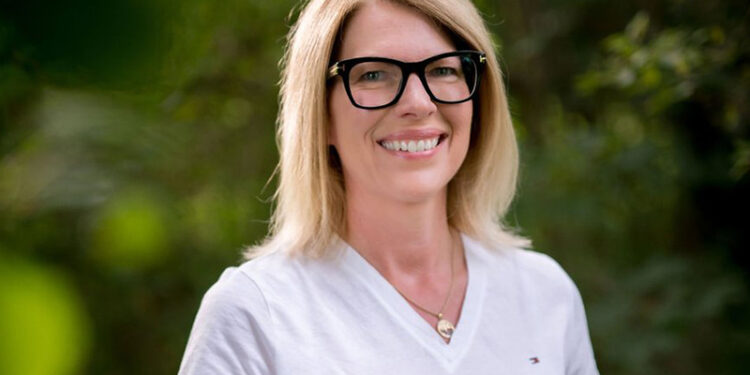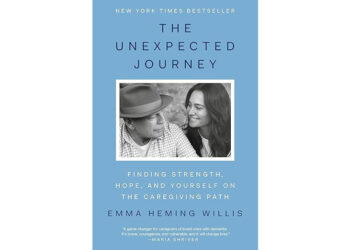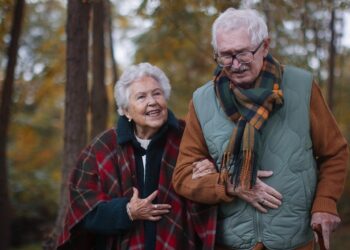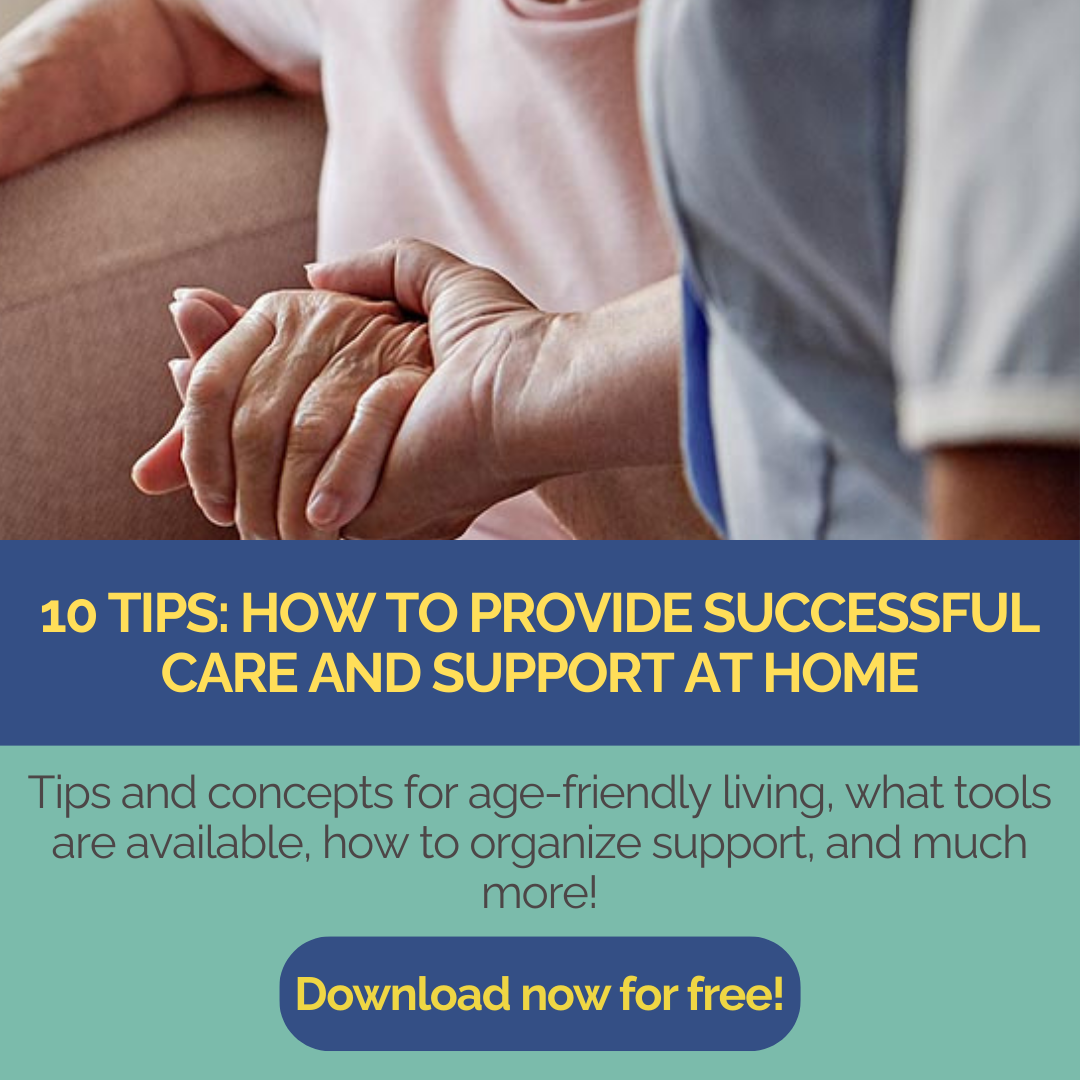Dieser Beitrag ist auch verfügbar auf:
Deutsch
In the vast majority of cases, care is not provided in a hospital or home – but at home. According to statistics, around 80 percent of all people in need of care in Germany are looked after by relatives. The ratio is similar in Austria. Yet these people are barely visible. They struggle in silence – with overwork, bureaucracy, loneliness and feelings of guilt.
Elisabeth Graml knows exactly what care means: she has been caring for her neurologically ill mother since she was a child – and has used this experience to develop an effective program that gives relatives new strength: the INSILA Academy.
INSILA: From nature for people
The academy is located in Tettenweis near Passau in Bavaria and offers training for care assistants and resilience training for family caregivers. The resilience training courses for family caregivers are free of charge thanks to funding from the AOK Bayern and the district of Passau.
What makes it special: Everything is practical, tangible and concrete. “The participants are grateful that they don’t just have to listen, but can actually do something – with all their senses.”
What sounds esoteric is pure scientifically proven relaxation: in her book “The Superpower of Plants”, Kathy WillisProfessor of Biodiversity at the University of Oxford, proves the positive effect of forest bathing. When pupils look out of the window at trees, they are much more relaxed and stress-resistant than pupils who only look at concrete. Even looking at pictures of trees and photos of green nature lowers stress levels. Listening to the sounds of nature led to an 184% improvement in the symptoms of test patients – such as pain, high blood pressure and depression. For this reason, forest bathing has been available on prescription in Japan since the 1990s.
The path to inner strength
In the groups, it becomes clear how much suffering family caregivers experience. They experience a multitude of burdens: The constant responsibility, the large amount of time required, which hardly allows for breaks. Many report a lack of sleep, exhaustion and physical complaints such as back pain or chronic fatigue. Emotionally, the strain often manifests itself in feelings of excessive demands, stress, anxiety and sadness.
Nature is brought back into the home in the workshops. Credit: Elisabeth Graml
Nature has a relaxing effect, lowers stress levels and improves complaints such as pain, high blood pressure and depression. Credit: Elisabeth Graml
Credit: Elisabeth Graml
“Many come with a stooped posture, tears in their eyes. And they leave with a smile,” reports Graml. The biggest relief is often not the method – but being understood: “Most of them tell me that no one has asked them how they feel for months or years.”
Elisabeth Graml knows from her own experience that family caregivers often lose themselves in their role. They are no longer perceived as a spouse, daughter or son – but only as the carer. “Many build up an incredible amount of inner pressure. Through the desire for perfectionism, feelings of guilt and the feeling of never being enough,” describes Graml. Accepting help is difficult for many of those affected because it is perceived as weakness.
How can inner strength be regained?
For Graml, resilience means changing one’s perspective: Carers should start to act again, not just react. No longer fighting against life, but going with it. Graml: “When I change my perspective on the situation, the environment often changes too – or at least my strength to deal with it.” And it’s also about making caregiving more sustainable and fulfilling for yourself.
“Resilience in the context of home care means developing the ability to remain mentally and emotionally stable despite the many stresses and challenges. It’s about activating resources to cope better with stress, overcome setbacks and maintain a positive outlook even in difficult situations,” explains the expert. After all, you can only provide long-term care if you remain healthy, balanced and resilient. If you neglect your own needs or disregard your own health, the risk of physical complaints and mental illnesses such as depression or burnout increases.
A silent crisis with loud consequences
A central problem in supporting family caregivers: Lack of information, lack of visibility of services. “What we need would be a simple, regional care information flyer for GPs. Because the GP is usually the first point of contact, and there should be an overview of advice centers, support groups and contact points.” Because many people simply don’t know that there is support for them.
In Graml’s opinion, there is not a lack of studies in the growing care crisis, but a lack of implementation: “The ‘care companion’ model was enshrined in law in Germany years ago. This is a trained person who provides mental support to relatives. But it was hardly ever implemented,” says Graml. Her vision: Former carers who go into families as real companions through targeted training. A system that creates relief – and prevents suffering.
Because one thing is clear to Graml: “The family caregivers of today are often the care recipients of tomorrow.” Many leave the caregiving period burnt out, ill and lonely. What do they really need? “Understanding. Listening. Rooms where people can breathe again. And better financial support and flexible care services to relieve the burden on family members,” says Elisabeth Graml, “And I would like society and politicians to show more recognition and appreciation for the work of family caregivers. Caring is often a huge emotional and physical challenge that takes place in secret. It would be important for their achievements to be publicly recognized and for them to be seen not just as helpers, but as important pillars of our healthcare system.”
Her message to family caregivers is clear: “What others say doesn’t count. Only that you are doing well. Get help. And don’t give up on yourself.”
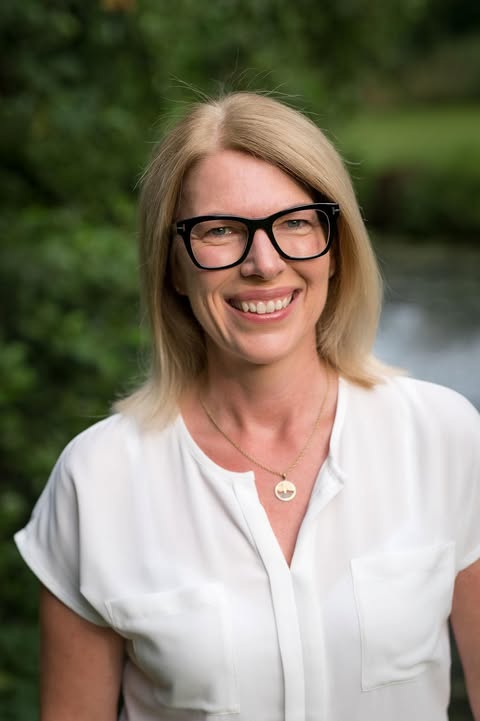
Elisabeth Graml runs the InSiLa Academy (“In Silva Lavari”): It offers practical, nature-based training for care and support staff as well as caregiving relatives. At its core is a holistic four-step concept(observe – perceive – remember – tell) that activates physical and mental resources – especially in senior citizens and people with dementia.
The offer includes forest bathing (Shinrin Yoku), Qi Gong (mobile in facilities on request), resilience & burnout prevention for teams and resilience training for family caregivers to promote inner strength and action competence. With “Dementia Partner”, Elisabeth imparts knowledge and support options relating to dementia in lectures and educational offers. All formats are flexible – from half-day workshops to training courses lasting several days – and can be implemented immediately. More on her website: www.insila-akademie.de
Personal recommendations for offers of help from our interview partner:
- One initiative that I would particularly like to highlight is “You don’t nurse alone” by Monika Huber. Among other things, it offers family caregivers a weekly online discussion group to encourage exchange, support and courage. It is a valuable platform to strengthen each other.
- Another project is CareWell, a research project at the LMU Munich in Bad Birnbach, which is developing an inpatient prevention program for family caregivers. The aim is to strengthen their physical and mental health and relieve them in their day-to-day care. I am delighted to be part of the development team.
- I would also like to support the association wirpflegen e.V. which is committed to the needs of family caregivers and provides a wide range of support services.
- Last but not least Desideria is a nationwide contact point for relatives of people with dementia, offering advice and support.
Author: Anja Herberth
Chefredakteurin


